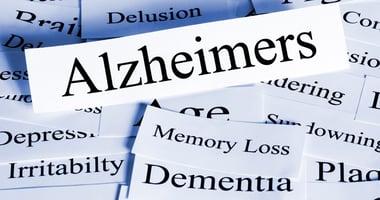The benefits of treating patients with Alzheimer’s disease (AD) with citalopram may extend beyond...
Drug Combination Found to Reduce Agitation in Patients With Alzheimer's
 |
Researchers from multiple institutions conducted a two-stage trial. In stage 1, 220 patients with probable Alzheimer’s disease (based on 2011 National Institute on Aging–Alzheimer Association criteria) and clinically significant agitation were randomized in a 3-to-4 ratio to receive dextromethorphan-quinidine (n = 93) or placebo (n = 127) for five weeks. In stage 2, the patients who had originally received dextromethorphan-quinidine continued to take the medication, while those receiving placebo were stratified by response and re-randomized in a 1-to-1 ratio to dextromethorphan-quinidine (n = 59) or placebo (n = 60) for an additional five weeks.
The primary end point was change from baseline on the Neuropsychiatric Inventory (NPI) Agitation/Aggression domain.
Analysis combining both stages showed significantly reduced NPI Agitation/Aggression scores for dextromethorphan-quinidine versus placebo. In stage 1, mean NPI Agitation/Aggression scores were reduced from 7.1 to 3.8 with dextromethorphan-quinidine and from 7.0 to 5.3 with placebo. In stage 2, NPI Agitation/Aggression scores were reduced from 5.8 to 3.8 with dextromethorphan-quinidine and from 6.7 to 5.8 with placebo. Serious adverse events occurred in 7.9% of patients administered dextromethorphan-quinidine versus 4.7% administered placebo. Dextromethorphan-quinidine was not associated with cognitive impairment, sedation, or clinically significant QTc prolongation.
“Dextromethorphan, the neurologically active component of the dextromethorphan-quinidine combination, has activity at receptors involved in modulating glutamate, serotonin, norepinephrine, and potentially other neurotransmitters, although the exact mechanism of action responsible for the reduction of dementia-associated agitation is not known,” the researchers stated.
As described in the recent Psychiatric News article “Combination of Dextromethorphan, Quinidine Reduces Agitation in Alzheimer’s Patients,” details of this study were presented at the 2015 Alzheimer’s Association International Conference in Washington, D.C., in July.
(Image: IgorGolovniov/Shutterstock)





